HOLLYWOOD, Jan. 26 —Edward G. Robinson, whose tough, sinister appearance on movie screens concealed the soul of a gentle man, died today at the age of 79.
Mr. Robinson succumbed at Mount Sinai Hospital where he had undergone tests in recent weeks. The cause of death was not immediately determined.
Man of Great Kindness
By ALDEN WHITMAN
Edward G. Robinson was a skilled actor of the stage and screen whose vivid portrayal of motion picture gangsters, among them Little Caeser, during the nineteen‐thirties marked powerful mobsters who ruled the underworld during the Prohibition era.
So effective was the Robinson interpretation of the gartgster that many of the underworld characters found themselves affecting the Robinson character—chomping down on cigar butts while snarling threats and orders out of the sides of their mouths.
But while Mr. Robinson was making his mark on others he, himself, remained strangely unaffected. In real life he was a man of great kindness and courtesy whose generosity scarcely knew bounds. Between 1939 and 1949 he made more than 850 contributions totaling above $250,000 to relief and entertainment agencies, to cultural, educational and religious groups.
His art collection comprised perhaps the outstanding ground of privately owned paintings in the United States.
During the course of a marital settlement it was sold in 1957 for $3,250,000.
Mr. Robinson was born Dec. 12, 1893, as Emanuel Goldenberg in Bucharest, Rumania.
One of Mr. Robinson's broth ers was hit on the head with a rock during a schoolboy pogrom and years later he died in America, probably from the affects of the blow.
To escape this persecution the family managed to scrape together the fare for steerage passage and came to the United states. “At Ellis Island I was born again,” Mr. Robinson wrote later. “Life for me began when I was 10 years old.”
As a boy Mr. Robinson, as soon as he had mastered English, made speeches to his family and friends. His favorite was Theodore Roosevelt's second inaugural address, which he had committed to memory.
He hoped to become a criminal lawyer “to defend the human beings who were abused. and exploited.” With this purpose, he entered Townsend Harris High School and after that City College: It was at City College that the youth decided to forego his law career to be an actor. He loved to perform before people.
But Mr. Robinson's study of the theatre told him that there had been many little men in the theatre. He won a scholarship at the American Academy of Dramatic Art with a sizzling and effective delivery of the Brutus and Cassius quarrel scene from “Julius Caesar.”
He was 19 when he entered a drama school and shortly thereafter changed his name to Robinson “a name I had heard while sitting in the balcony of the Criterion Theatre.”
He played in stock in Cincinnati, in vaudeville as a Chinese man in a skit at Hammerstein's. He finally broke into the legitimate theater in 1915 in a play called “Under Fire.” He got the part because he was multilingual, an attribute called for in the script, Role followed role and the youngster received many good notices.
He joined the Theatre Guild and played a great variety of roles in such productions as “The Adding Machine,” “The Brothers Karamazov,” “Right You Are, If You Think You Are” and “Juarez and Maximilian.”
He was starred for the first time in “The Kibitzer” —a play of which he was the co‐author.
In January 1927, Mr. Robinson married Gladys Lloyd, an actress.
Mr. Robinson had experimented with several screen roles in silent pictures but he was not happy with the result. With the addition of sound to the shadows, however, Mr. Robinson's interest was renewed and he tried his first talking picture “The Hole in the Wall."
There followed “The Widow from Chicago” and a short time later, in 1931, “Little Caesar.”
Of “Little Caesar” a critic for The New York Times wrote:
“‘Little Caesar’ becomes at Mr. Robinson's hands a figure out of a Greek tragedy, a cold, ignorant, merciless killer, driven on and on by an insatiable lust for power, the plaything of force that is greater than himself.”
The film contained a climatic line that itself became a classic, Little Caesar's parting words as he lay slumped under a billboard after he had been shot by the police:
“Mother of God, is this the end of Rico?”
It was sometimes said that Mr. Robinson was selected to play the role of Little Caesar because of a resemblance to Al Capone, the Chicago vice baron. Mr. Robinson doubter this theory, and there was no real‐life resemblance. Hollywood makeup artists, however always managed to make Mr. Robinson look as sinister as Capone was reputed to be.
A more reasonable theory was that Hollywood sought him out because of his success as Nick Scarsi, a character in a play called “The Racket. This play was so real, Mr. Robinson once remarked, that it could not be produced in Chicago.
In any event, his portrayal of Little Caesar came to be considered a classic, and there followed others in the curled lip mold—“Smart Money,” “Five Star Final,” “Bullets or Ballots,” “Kid Galahad” and “A Slight Case of Murder.”
The actor thought “Five Star Final” was one of his finest tough guy pictures. In it he played Randall, the editor of a muckraking tabloid. This film, released in 1931, along with many of his other movies, has been revived from time to time on television.
Mr. Robinson's first real departure from his two‐fisted type of role on the screen was “Dr. Ehrlich's Magic Bullet” in 1940, and even this film about syphilis was billed as “the war against the greatest public enemy of all.”
From 1929 to 1966 Mr. Robinson appeared in more than 100 films. His name, until recent years, usually meant good box office. In all, his films grossed well over $50‐million, and this figure is a modest estimate. His own earnings were high and he lived appropriately.
Mr. Robinson was the first Hollywood star to entertain in France after the invasion of Normandy. He sold war bonds and it was said he turned his regular weekly radio dramatic show “Big” Town” into a soapbox in favor of the American way.
The American Legion gave the program a citation and he was commended for his “outstanding contribution to Americanism through his stirring patriotic appeals.”
But because he had allowed his name to be linked with so many causes, inevitably there were those with a Communist tinge. Mr. Robinson was named in “Red Channels” in connection with 11 Communist front organizations.
But Mr. Robinson carried his case to the House Un‐American Activities Committee and eventually won a clean bill of health.
After 28 years of marriage, Mr. Robinson was sued for divorce in 1955 and his wife was granted an interlocutory divorce decree the next year.
After 28 years as a movie actor, Mr. Robinson returned to the stage in “Middle of the Night” and scored a success. At the age of 63, he was a forceful and vital figure on the stage and the youthful cast said that they found it difficult to match his boundless energy.
In “Middle of the Night” he portrayed an aging widower who married a much younger woman. Early in 1958, while he was still appearing in the Paddy Chayefsky play, Mr. Robinson was married to. Jane Bodenheimer, a 38‐year‐old dress designer known professionally as Jane Arden.
After his stage success, the actor performed occasionally on television and played featured roles in several other movies.
In all, he appeared in 40 Broadway plays and more than 100 films. Among his most recent movies were “A Boy Ten Feet Tall,” “Cheyenne Autumn,” “The Cincinnati Kid” and “Sammy Going South.” It was while making this picture in 1964 that he suffered a mild heart attack.
Mr. Robinson was an excellent actor and was to have received a special Oscar for his “outstanding contribution to motion pictures” at the Academy Awards ceremony on March 27. It would have been his first Oscar.
He received a number of other citations, however, including the Legion of Honor, the Eleanor Roosevelt Humanitarian Award, and a medal from City College, his alma mater. At the bestowal ceremony for the medal in 1965, he yielded to student demands for a glimpse of his “Little Caesar” style.
“So you want to be an actor?” he demanded of one sophomore, with a finger jab in the chest. “Well, stick to your schooling, kid!”
Surviving are his widow; a son by his former marriage, Edward G. Robinson Jr.; granddaughter, Francesca, and a brother, William Goldberg.
Funeral services for Mr. Robinson will be held Sunday at 2 P.M. at Temple Israel, 7300 Hollywood Boulevard, with Dr. Max Nussbaum officiating. The eulogy will be delivered by Charlton Heston.
Serving as pallbearers will be Jack L. Warner, Hal B. Wallis, Mervyn Leroy, George Burns, Sam Jaffe, Frank Sinatra, Jack Karp, and Alan Simpson.
He was buried in Queens.
ADVERTISEMENT
BY
Looking for more information?
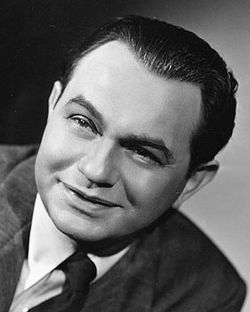
 Amanda S. Stevenson
Amanda S. Stevenson 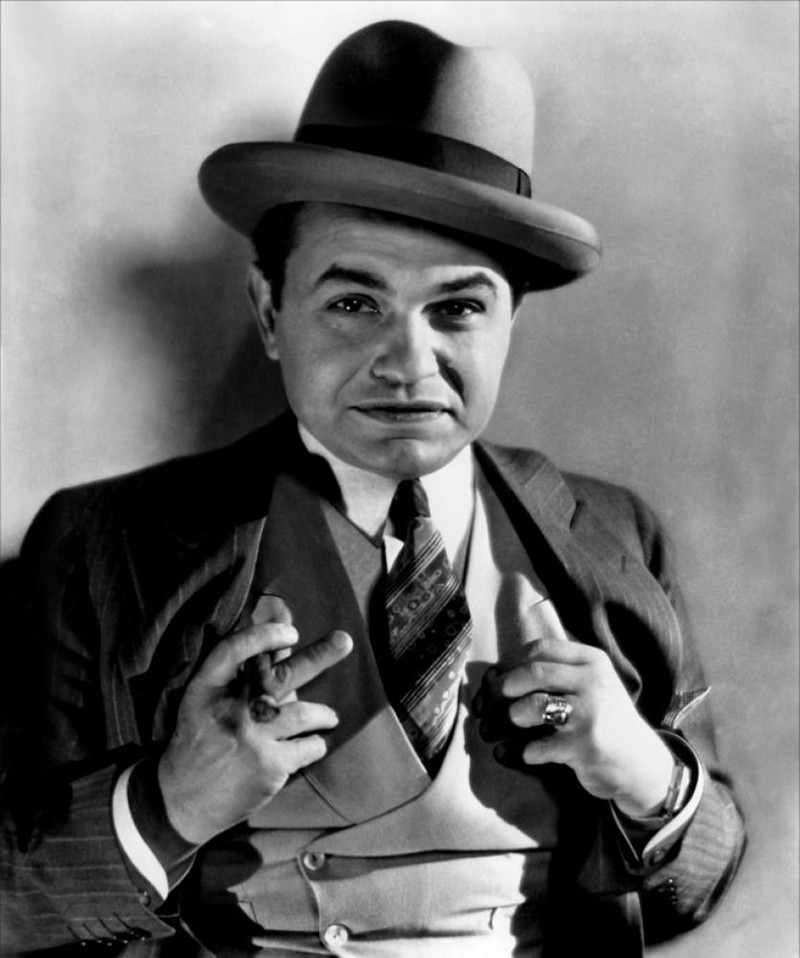
 Amanda S. Stevenson
Amanda S. Stevenson 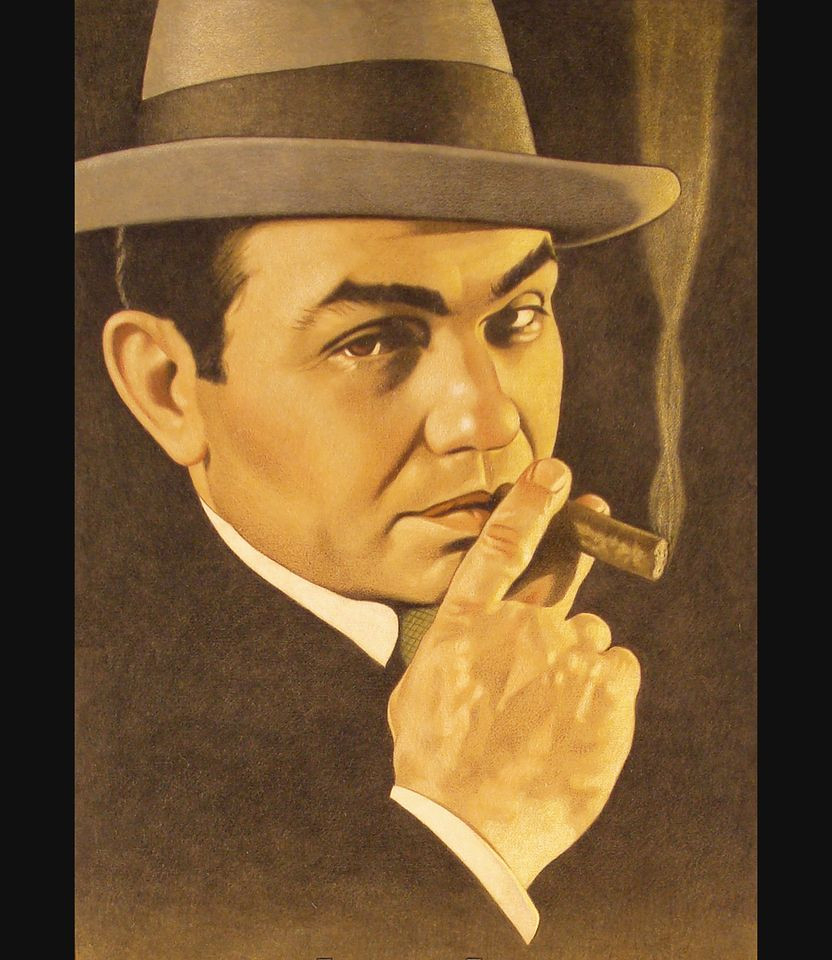
 Amanda S. Stevenson
Amanda S. Stevenson 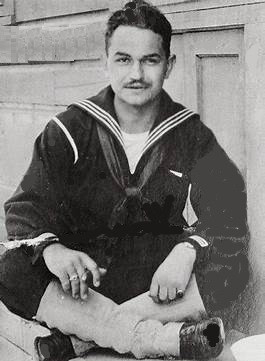
 Amanda S. Stevenson
Amanda S. Stevenson 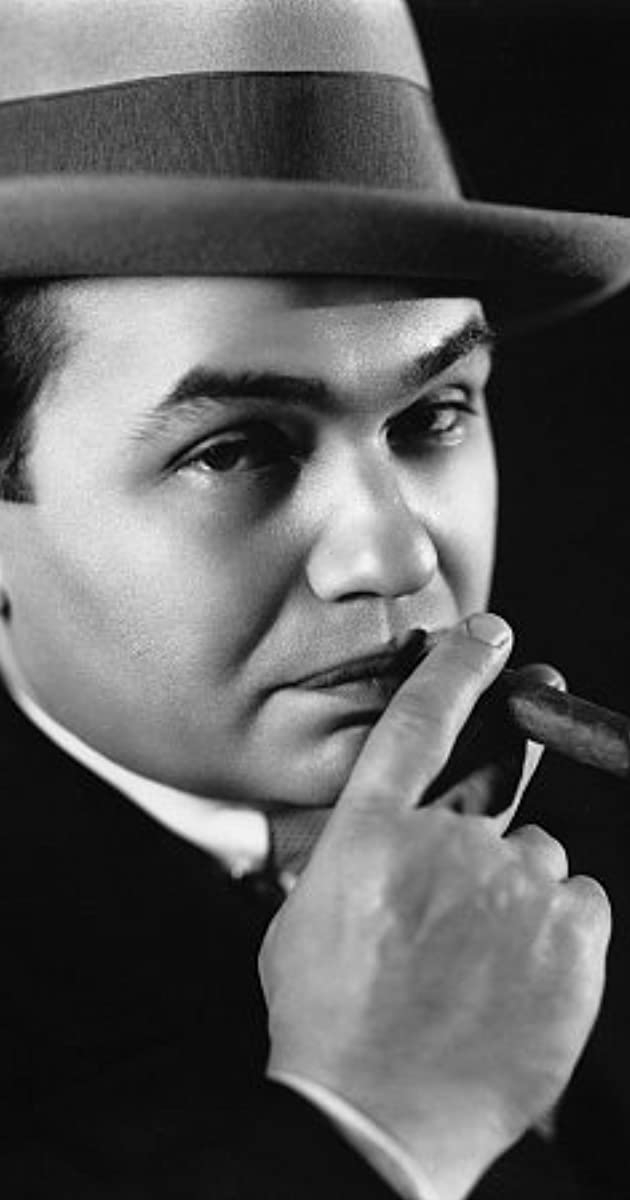
 Amanda S. Stevenson
Amanda S. Stevenson 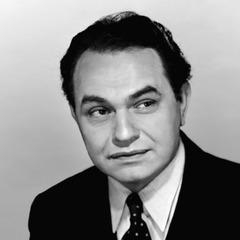
 Amanda S. Stevenson
Amanda S. Stevenson 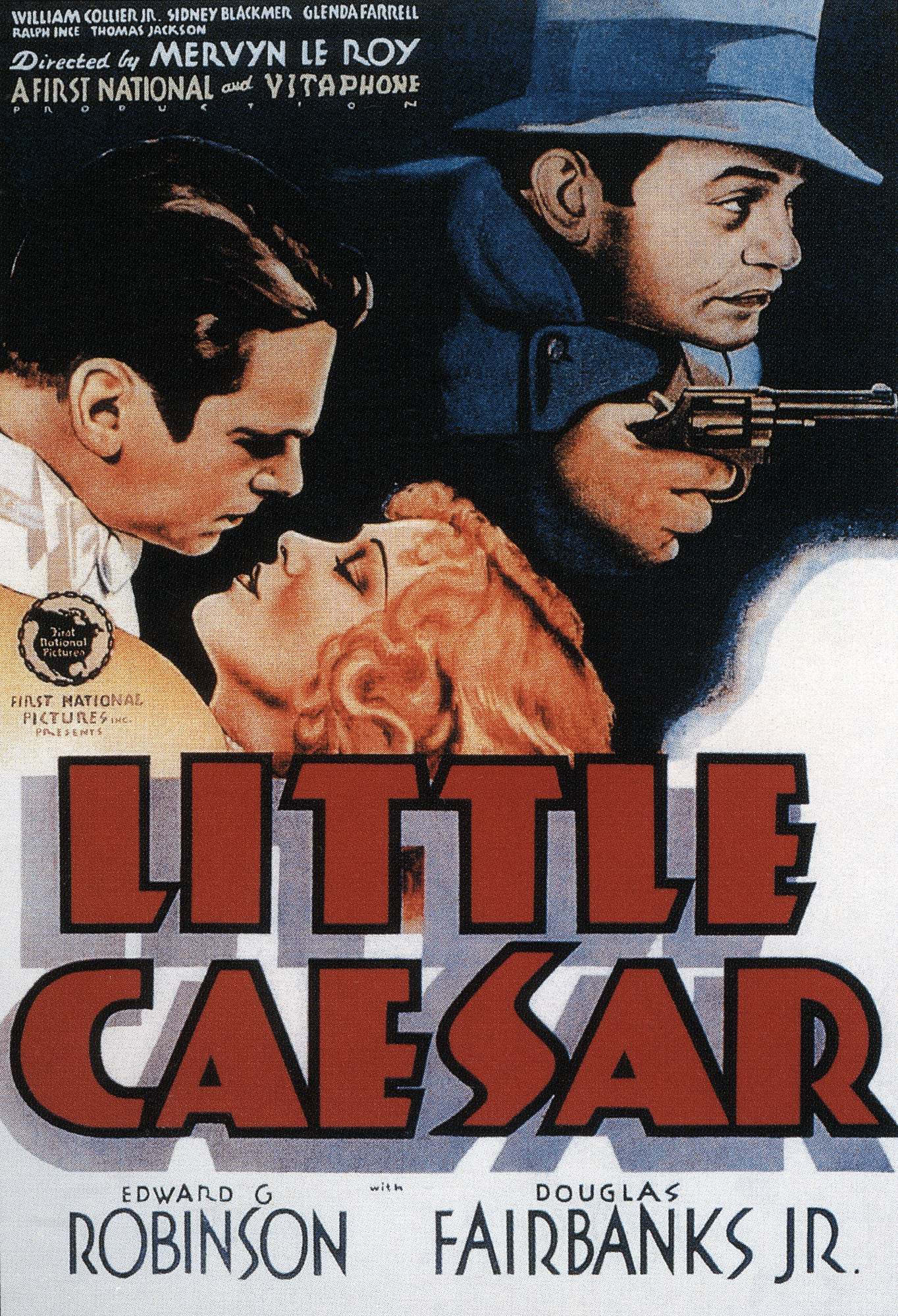
 Amanda S. Stevenson
Amanda S. Stevenson 
 Amanda S. Stevenson
Amanda S. Stevenson 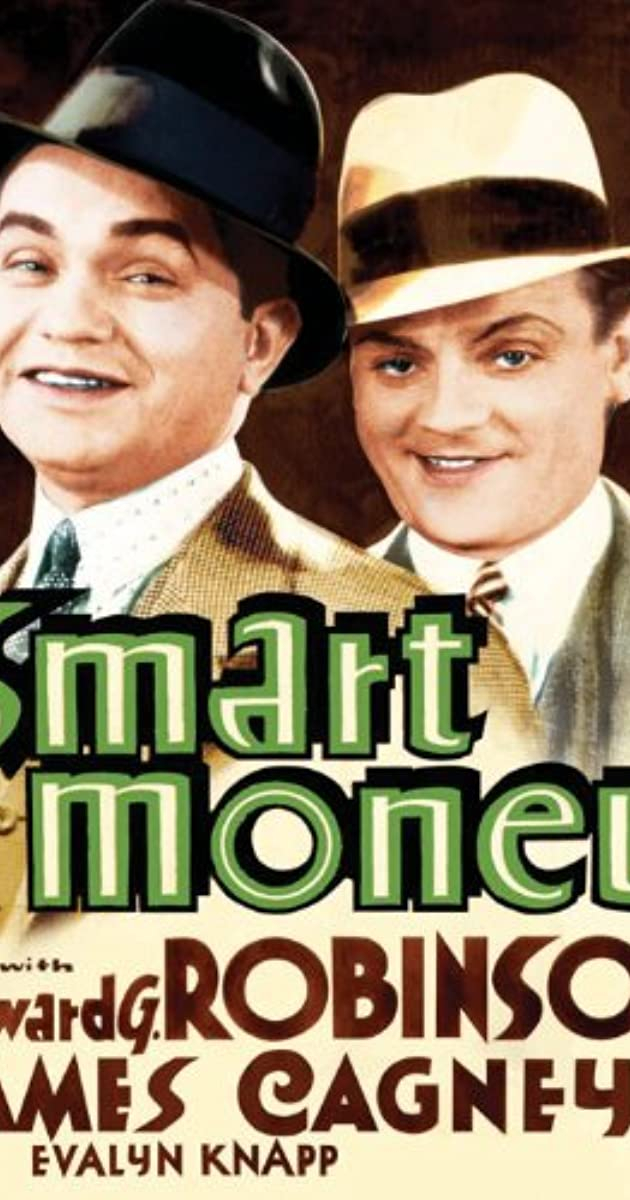
 Amanda S. Stevenson
Amanda S. Stevenson 